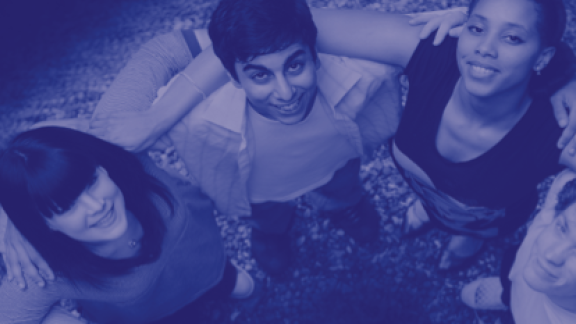From evidence to action: advocating for comprehensive sexuality education
defines CSE, answers common questions and sorts fact from fiction
connects good quality CSE to global health goals
promotes approaches which recognise young people’s lived experience
links to reports on what works and what obstructs CSE and SRHR goals
provides a checklist of activities for CSE advocates
"Good sexuality education is essential to help young people to prepare for healthy and fulfilling lives. High quality information and comprehensive sexuality education can equip them with the knowledge, skills and attitudes they need to make informed choices now and in the future; to enhance their independence and self-esteem; and to help them to experience their sexuality and relationships in a positive and pleasurable way."
There is evidence that CSE is effective and that abstinence-only approaches are ineffective. Evidence can provide the basis for promoting new thinking, and changing national approaches to teaching by demonstrating that a rights-based approach is a highly successful teaching methodology.
It answers these questions: What is CSE? Why do it? What should it include? How can we deliver it? How can we advocate for it?
This resource can help develop a greater understanding of IPPF’s vision for rights-based CSE; provide the evidence base for CSE, identifying successful characteristics, approaches and outcomes; support advocacy work with practical advice on creating the climate for CSE programmes; respond to challenges and difficult questions on comprehensive sexuality education from members of the community, addressing opposition and resistance; and create a better understanding of the links between comprehensive sexuality education and HIV prevention, human rights, health outcomes and global health goals.
Young people need a realistic approach to their sexual and reproductive health: looking at psychological, socio-cultural and ethical dimensions and beyond the simply biological. CSE programmes should be rights-based; address gender and pleasure; provide choice; develop critical thinking skills; and reach vulnerable and marginalised groups.
Includes:
- a checklist of activities to advocate for CSE
- ways in which comprehensive sexuality education helps further global health goals including gender equality, maternal health and combating HIV/AIDS
- international human rights conventions and documents that support the case for CSE
- links to HIV prevention
- a reading list of research and briefings on CSE
- answers to a range of common questions and myths about young people, sexual health and sexuality education
- answers to questions about the how, when, where and what of sexuality education
A checklist of activities to advocate for comprehensive sexuality education p.16
when
Subject
Comprehensive Sex Education








